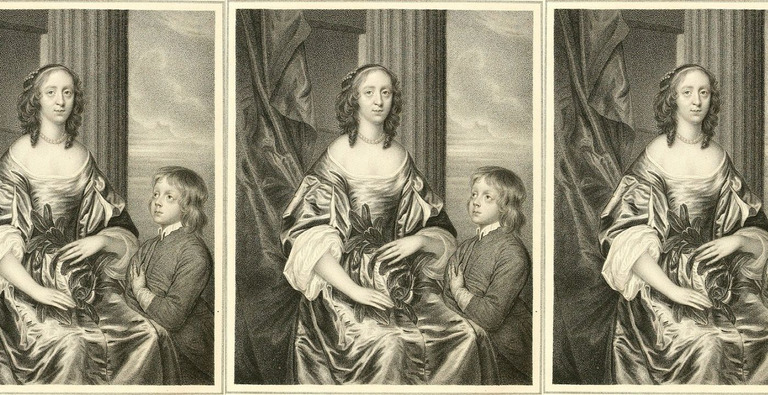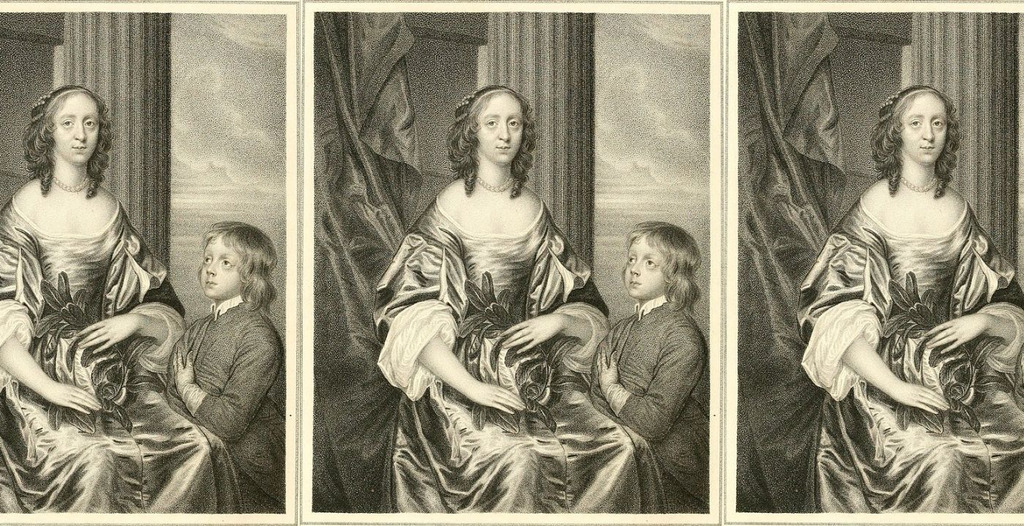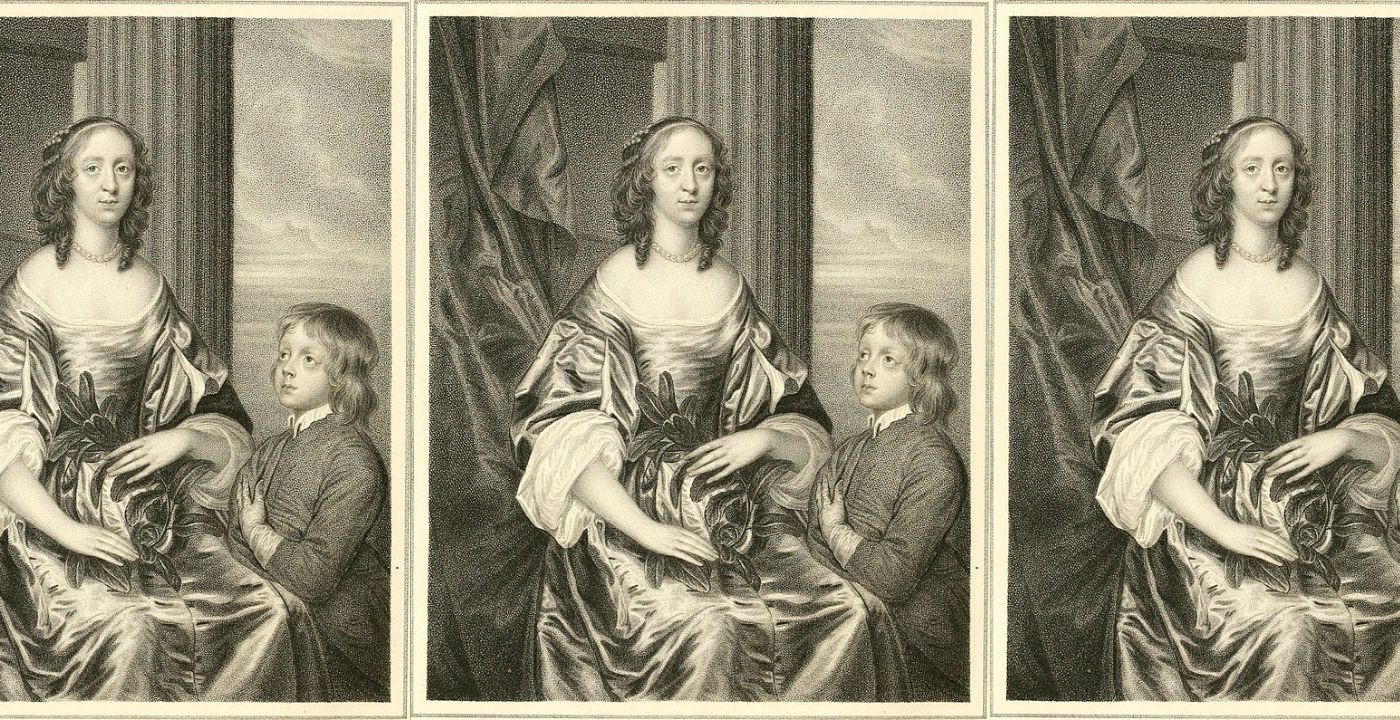Birth
January 29th, 1620 In the Queen’s House of the Tower of London.
Education
Conventional elite feminine skills plus Latin and theology.
Death
March 6th, 1681 in Owthorpe, Nottingham NG12 3UG, UKReligion
ProtestantLucy Hutchinson was a scholar, theologian, creative writer, translator, and political activist. She belonged to the Parliamentarian faction during the Civil War, along with her husband. She was the first person to translate Lucretius's De rerum natura from Latin.
Personal Information
Name(s)
Lucy Hutchinson (née Lucy Apsley); Lady Lucy Hutchinson
Date and place of birth
29 January 1620, in the Queen’s House of the Tower of London.
Date and place of death
1681, in Owthorpe, Nottinghamshire.
Family
Mother: Lucy Apsley (née Lucy St. John, 1584-1658; later [2nd marriage] Lucy Francke).
Father: Sir Allen Apsley, Lieutenant of the Tower of London (1582-1630).
Marriage and Family Life
m.: 3 July, 1638, at Owthorpe, Nottinghamshire, to John Hutchinson (1615-1664).
issue of marriage:
- Thomas and Edward, twins born in 1639
- A daughter (Barbara or Margaret), born 1641
- John, born 1642
- Lucius
- Another daughter
- An eighth child, born 1662
Education
Lucy Apsley received a conventional gentlewoman’s education, including music, dancing, and needlework, but disliked these subjects. She also learned Latin and Protestant theology. Her brothers attended the Merchant Taylors’school, which might therefore have contributed proximately to her education.
Little detail of her education is known apart from documents that confirm that she was being cared for and educated in her early childhood at the Convent of Santa Clara in Estella, Navarre (see Catálogo de la Seccion de Comptos vol.VII, document 604, dated April 9, 1369).
Religion
Protestant (Puritan).
Transformation(s)
Like many of her contemporaries, Hutchinson was transformed and, indeed, galvanized by the Civil War. During the conflict and again after the Restoration, she had to advocate for her family and political outlook, and even save her husband’s life. She rose to these challenges.
Contemporaneous Network(s)
Hutchinson belonged to the Parliamentarian faction during the Civil War, as did her husband. She collaborated with the Caroline court musician Charles Coleman, tutor to her sister Barbara, on songs (c. 1637) that are now lost. Her network includes her patron Arthur Annesley, Earl of Anglesey. Her siblings were Sir Allen Apsley, M.P., to whom her work was once misattributed, Edward Apsley, James Apsley, William Apsley, Barbara Hutchinson (née Apsley), and Ann Apsley. She did not belong to any woman-centered or feminist networks, but her writings show that she participated in a kinship literary coterie relationship with her daughter Barbara. Margaret Cavendish was an ideological rival. As Lucretius’s first English translator, she is also an important node in the millennia-spanning Epicurean tradition.
less
Significance
Works/Agency
Narrative of her role in the civil war (1644-5), translation of Lucretius's De rerum natura (probably 1650s; manuscript in the possession of her patron the Earl of Anglesey is dated 1675), parody of Edmund Waller's 'Panegyrick' to Cromwell (1650s), epic poem Order and Disorder (circa 1660-4; surviving manuscript dated 1664, fragment printed anonymously in 1679); Memoirs of the Life of John Hutchinson (after his death in 1664), two theological treatises: one, a translation of John Owen's Theologoumena Pantodapa and the other addressed to her daughter Barbara.
Reputation
Recognition as a scholar, theologian, creative writer, and political activist is largely posthumous and burgeoned during the nineteenth century and again in the twenty-first century. During the eighteenth and nineteenth centuries, Hutchinson was long deeply controversial. After all, with the fall of the Commonwealth, her faction was defeated, and has arguably never regained its lost ground. For generations, her works held at Owthorpe were withheld from the public. One of her husband’s descendants, Sir Thomas Hutchinson, allowed the radical historian Catharine Macaulay to read her Memoir of John Hutchinson, but not to publish it. A generation later, in 1806, his nephew, the Reverend Julius Hutchinson published it, with a deeply apologetic paratext that tries to neutralize her controversial politics. The anonymous annotator of one surviving copy of this edition associated Lucy Hutchinson’s views—and, by extension, those of Julius, too—with Regicide, and condemned them in light of the execution of Louis XVI. More recently, she has been recovered as an example of women’s intellectual and spiritual potential fulfilled.
References in other female biographies
Burder, S., Memoirs of Eminently Pious Women of the British Empire, 4th ed. (London: Ogles and Duncan, 1823).
Russell, W., Extraordinary Women: Their Girlhood and Early Life (New York: G. Routledge, 1857). Internet Archive, New York Public Library, https://archive.org/details/extraordinarywo00russgoog.
less
Controversies
Controversy
See above for various controversies in which Lucy Hutchinson was involved, in her lifetime and posthumously. Additionally, she was for some time thought to have forged a document in her husband’s name that saved his life by misrepresenting his political beliefs. Alternately, as the critic Derek Hirst conjectures, her tale of love-induced forgery might be one of her literary inventions.
New and Unfolding Information and/or Interpretations
Her works are in the process of being edited and published by Oxford University Press, in a multivolume edition.
less
Bibliography
Primary (Selected):
Anonymous, Annotations to Memoirs of Colonel Hutchinson by Lucy Hutchinson, edited by J. Hutchinson (1806), University of California Libraries, Internet Archive https://archive.org/details/lifeofcolonelhut00hutc.
Bacon, D. F., Memoirs of Eminently Pious Men and Women of Britain and America (New Haven: Daniel McLeod, 1833).
Barbour, R., Norbrook, D. and Zerbino, M. The Works of Lucy Hutchinson: The Translation of Lucretius, 2 vols., edited by Reid Barbour, David Norbrook and Maria Cristina Zerbino (Oxford University Press, 2012).
Hutchinson, L., Memoirs of the Life of Colonel Hutchinson, Governor of Nottingham Castle and Town…, edited by Julius Hutchinson (London: Longman, Hurst, Rees and Orme, 1806).
Hutchinson, L., Order and Disorder, ed. by David Norbrook (Baltimore, MA: Johns Hopkins University Press, 2001).
Secondary (Selected):
Davies, K., Catharine Macaulay and Mercy Otis Warren: The Revolutionary Atlantic and the Politics of Gender (Oxford University Press, 2005).
Hirst, D. ‘Remembering a hero: Lucy Hutchinson’s Memoirs of her husband’, English Historical Review 119.482 (2004), pp. 682–691.
Lobo, G.I., ‘Lucy Hutchinson's Revisions of Conscience', English Literary Renaissance, 42.2 (2012), 317-21.
Looser, D., British Women Writers and the Writing of History, 1670–1820 (Baltimore, MD: Johns Hopkins University Press, 2000).
Levy, M., ‘“The different genius of woman”: Lucy Aikin’s historiography’, in Felicity James and Ian Inkster (eds.), Religious Dissent and the Aikin-Barbauld Circle, 1740–1860 (Cambridge University Press, 2012), pp. 156–182.
Mellor, A. K., Mothers of the Nation: Women’s Political Writing in England, 1780–1830 (Bloomington: Indiana University Press, 2002).
Miller, S., ‘Marriage, maternity, and contract: Lucy Hutchinson’s response to patriarchal theory in Order and Disorder’, Studies in Philology, 102.3 (2005), pp. 340–377.
Walker, G. L., ‘The invention of female biography’, Enlightenment and Dissent, 29 (2014), pp. 79–136.
Archival Resources (selected):
Translation of De Rerum Natura. British Library Manuscripts Add MS 19333.
Imperfect Memoirs of Colonel Hutchinson. British Library Manuscripts Add MSS 25901
Manuscript Notebook. British Library Manuscripts Add MSS 39779
Web Resources (selected):
‘A Chronology of Lucy Hutchinson’s Writings’, Centre for Early Modern Studies, University of Oxford,
https://earlymodern.web.ox.ac.uk/chronology-lucy-hutchinsons-writings
'Lucy Hutchinson', Perdita, https://web.warwick.ac.uk/english/perdita/html/pw_HUTC01.htm
For a thorough, up-to-date bibliography of Hutchinson sources, including manuscripts, please see the CEMS Hutchinson Bibliography Page: https://earlymodern.web.ox.ac.uk/bibliography-lucy-hutchinson



Comment
Your message was sent successfully